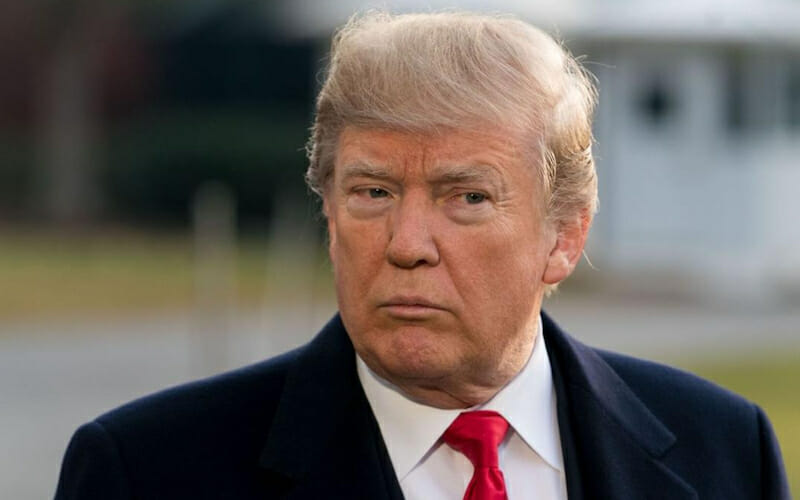
The Iran Nuclear Agreement is not Worth Saving
Many people around the world who are in favor of the Iran Nuclear Agreement (the JCPOA) may not realize that it was never approved by the US Congress, is not a formal treaty from an American legal perspective, and only 21% of Americans approved of the Agreement when it was put into place in 2015. The fact is, the JCPOA was highly controversial when it was implemented, and while some hailed it as a breakthrough, it remains a source of concern among many in the US and around the world, and it is deeply flawed on a variety of levels. Mr. Trump was right to withdraw from it, for it did not accomplish what the US and the West should have hoped to achieve by engaging in such an agreement in the first place.
Without the US as the anchor, it is difficult to imagine that the agreement will remain in force long-term, and it is of course questionable whether it should remain so. The Europeans have always understood that the economic benefits associated with having the agreement in place – maintaining access to the US market and gaining access to Iran’s – was a primary incentive to be party to the agreement. It was also understood that American adherence to the deal was necessary to reach a quid pro quo for the Iranians.
With sanctions soon to be put back in place by Washington, secondary economic impacts that will be thrust upon European companies that choose to continue to do business with Iran, which may prove to be the death knell of the Agreement. Very few European companies would be willing to give up access to the large and lucrative American market in order to continue to invest in and trade with the comparatively small Iranian market. And, while many European governments do not like the unilateral action taken by the Trump administration any more than some Iranians do, they have neither the political nor economic will to stand up to Mr. Trump on purely idealistic grounds. The cold hard fact is that European businesses need America more than America needs them – Mr. Trump knows it, and so does Europe.
Mr. Trump desires neither that Iran resume its nuclear program nor to be at odds with the Europeans. What he wants, and what is needed, is an improved deal with Iran – one that is formally endorsed by the US Congress as a treaty, that does not have a sunset clause, that specifically addresses Iranian ballistic missile development, and results in an even more robust inspection regime. The Agreement was never more than a temporary, inadequate patch on what remains a festering wound.
The truth is that the JCPOA did nothing to prevent Iran from continuing to meddle in the Middle East. Tehran’s “proxy wars” continue unabated because of its desire to flex its muscles and oppose Israel and Saudi Arabia. Its adventurism in the region also serves as a way for Iran to gauge just how much influence it can exert in the foreign policy of other countries now, and in the future. That is unlikely to change with or without an agreement or sanctions. It is worth remembering that Iran was active in Iraq, Lebanon, Syria, and Yemen, and achieved near breakout capability in its nuclear program, while the sanctions were in place, and remained active in all these countries after the agreement came into effect.
The JCPOA was seen as a military/security-oriented agreement for all the parties apart from Iran; for Iran, it was viewed as a multifaceted military, economic, and political agreement that gave Tehran much greater freedom and maneuverability to act. Among the many questions raised by Mr. Trump’s action is whether the re-imposition of stringent sanctions on the part of the US will succeed in bringing Iran back to the negotiating table, whether Europe, China and Russia agree to participate in round two, and whether Iran would ever agree to add all these elements into a new agreement. Only time will tell, of course, but there are at least as many obstacles standing in the way of a second such agreement as there were in the first.
While some elements of the Iranian politic – namely the Conservatives and Revolutionary Guard – will, in the near term at least, benefit from the Trump administration’s action, the Iranian people can see beyond short term impacts. They know that if the Iranian government was not engaged in proxy wars and did not have a nuclear and ballistic missile program, they would not be suffering economically as they have in the past and will now again. They continue to yearn for political and economic freedom. It is unfortunate that they will be among the innocent victims in this battle, but, in the end, it is only they who can free themselves of a government that enslaves them through its actions inside and outside of Iran.
The Iranian government will soon have a choice to make: it can either attempt to garner continued European support for the JCPOA, or it can actively pursue its temporarily suspended nuclear weapons program. It cannot do both, for the European parties to the Agreement will surely no longer wish to support it if Iran is back on the path toward acquiring operational nuclear weapons. So, whether the JCPOA continues to exist, or a new, improved agreement is ultimately crafted, is up to the Iranians. America’s position is now perfectly clear. Soon enough, Europe’s position will be as well.
